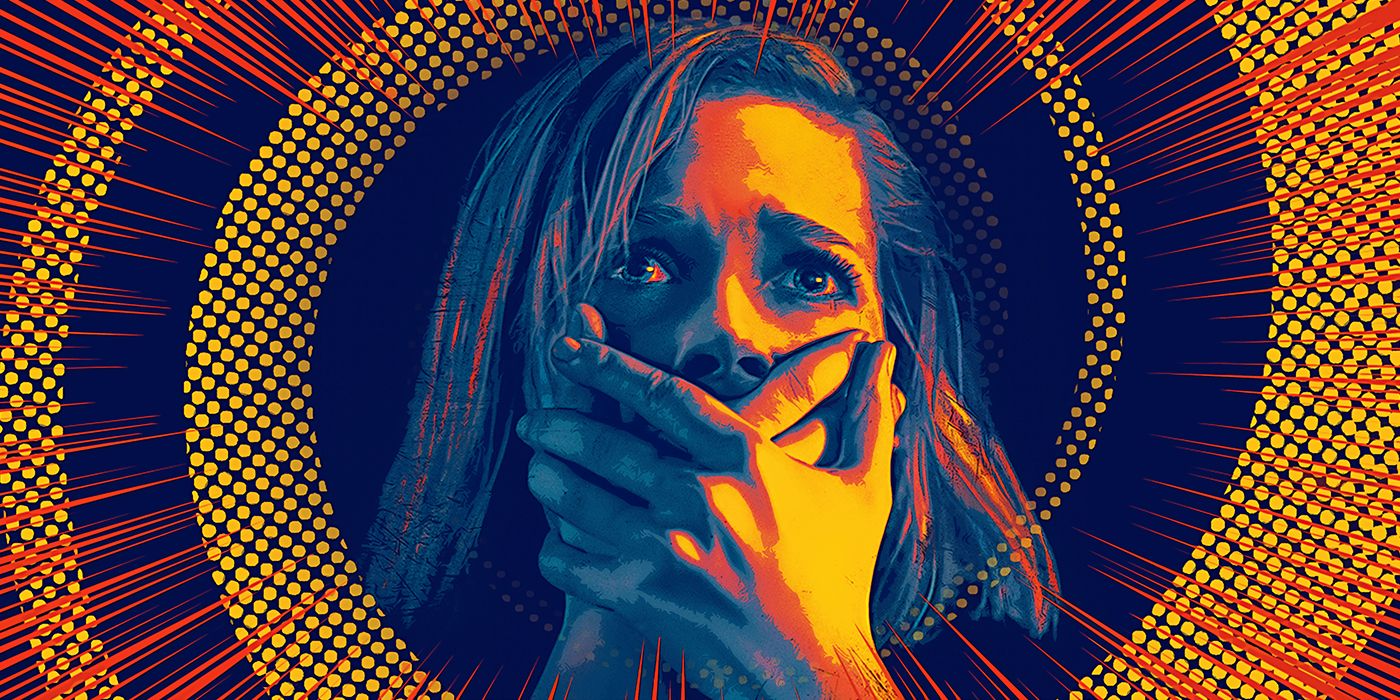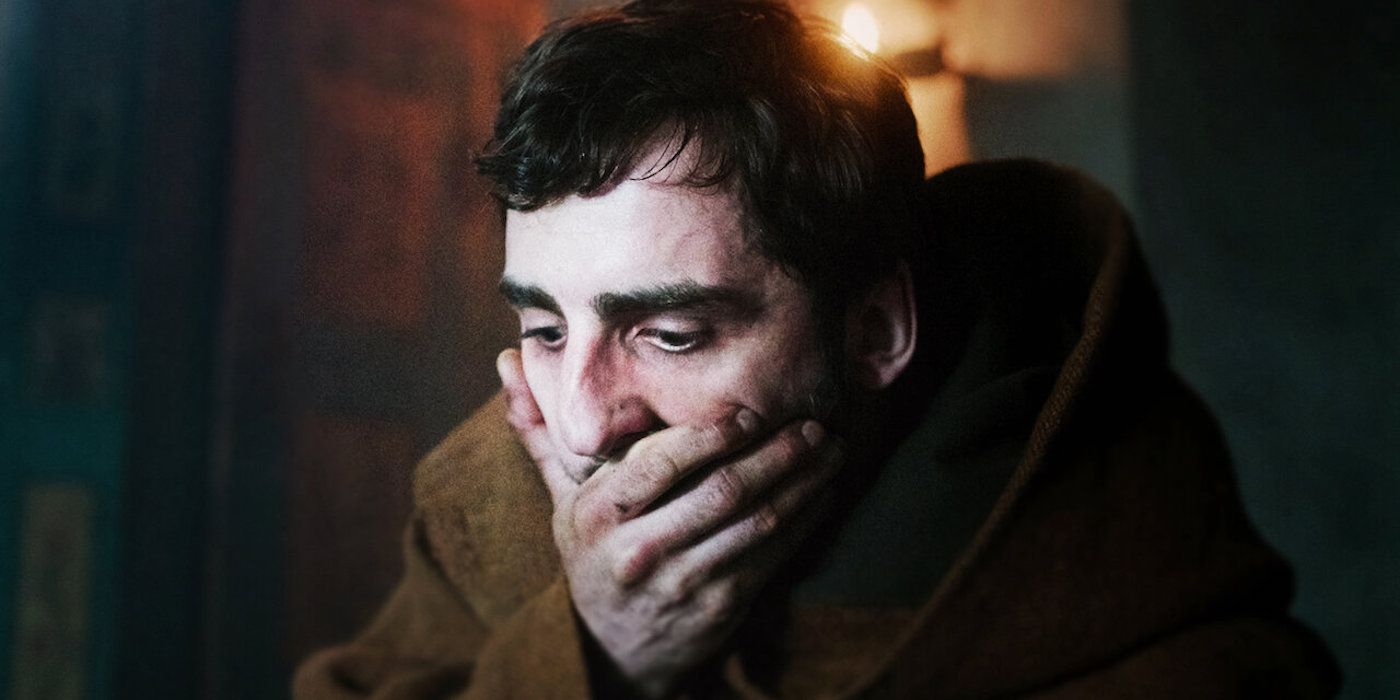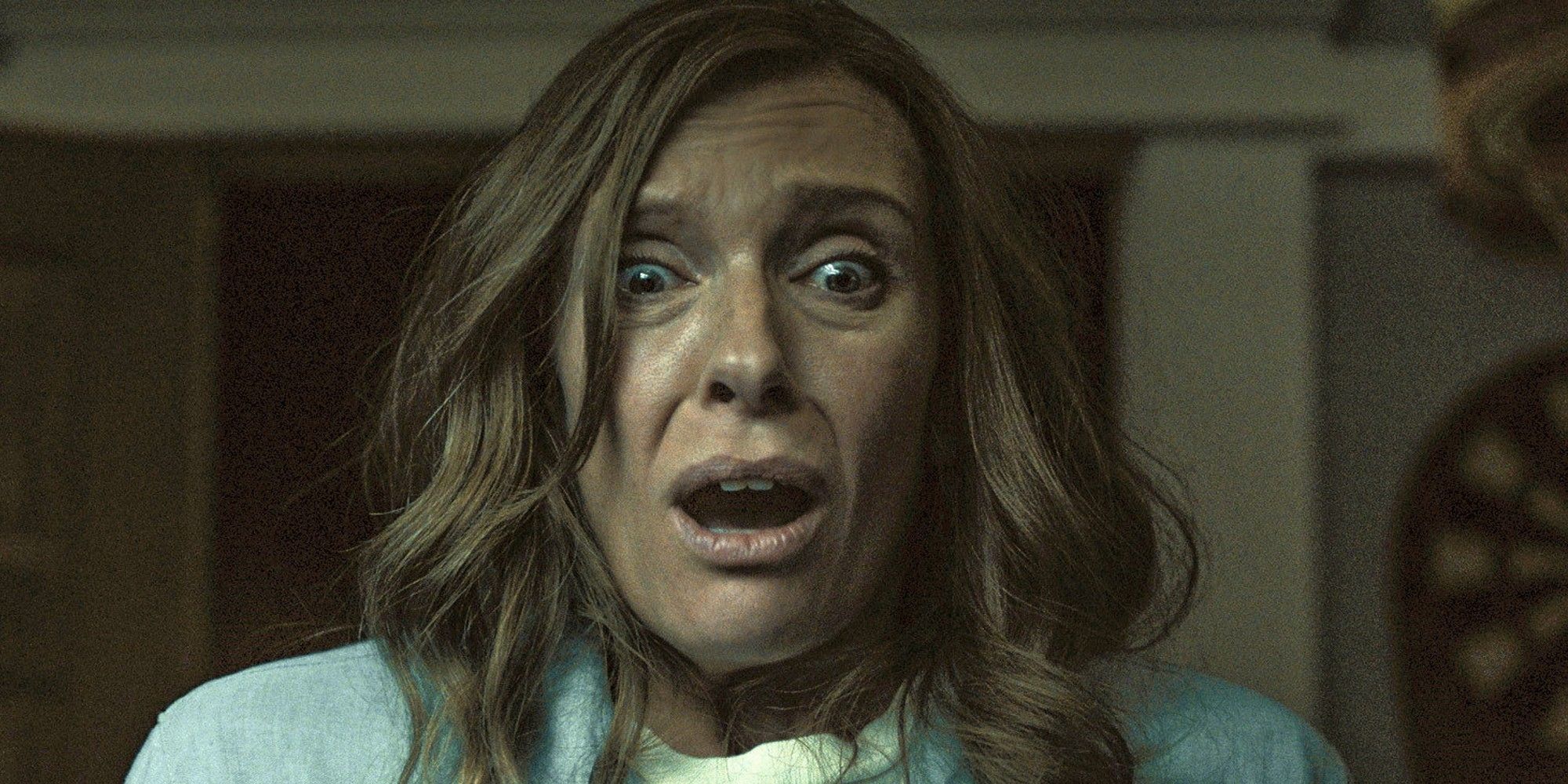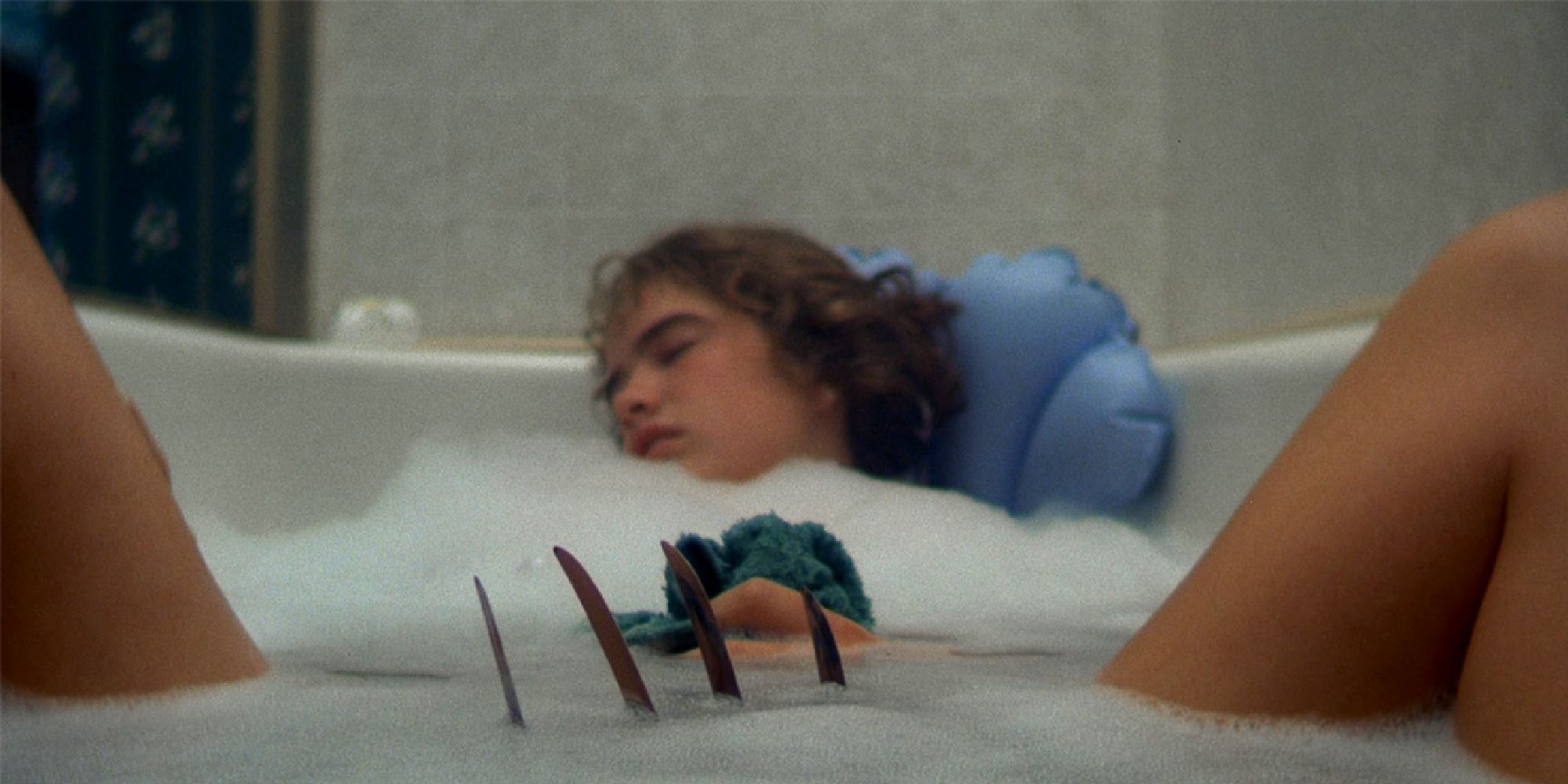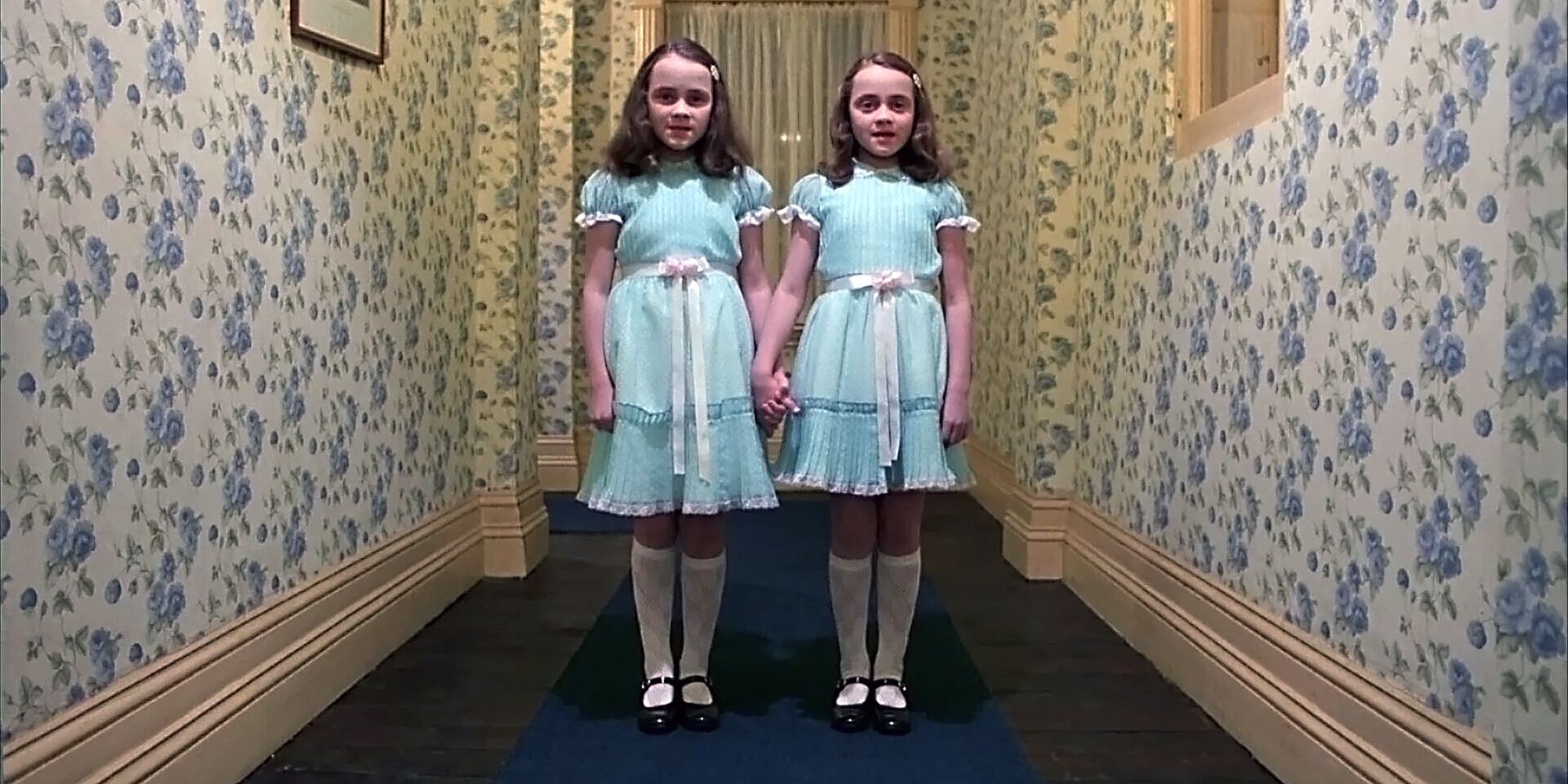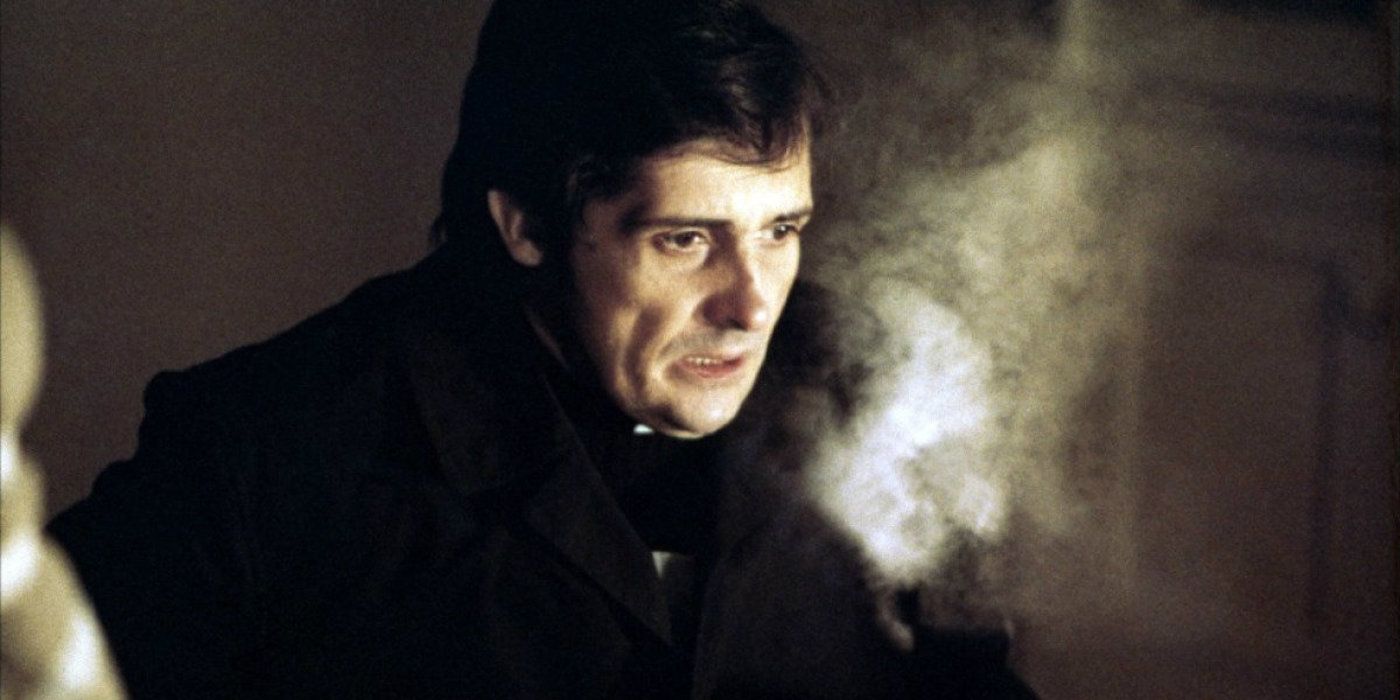By all accounts, watching a scary movie to help calm your nerves seems counter-intuitive. Feeling stressed? Why not sit back and enjoy two hours of jump scares and blood-curdling screams? Nonetheless, there’s actually a fair amount of research out there to back up the fact that watching horror movies can be helpful for people with anxiety. It’s by no means a cure and it doesn’t work for everyone, but studies show that watching a horror flick might help with completing our stress cycles and redirecting our fears, instead of just leaving us sitting there biting our fingernails (just kidding, we already chewed them off). So with no shortage of great options to choose from, could a good horror movie really be useful in relieving our anxiety?
Anxiety Is Fear With No Place to Go
First off, anxiety is a complicated thing. It’s not a one-size-fits-all model, and there are lots of different kinds and causes. While fear is totally normal and helpful in keeping us alive, people with anxiety experience an excessive amount of fear that’s disproportionate to the situation at hand. As somebody who can just as easily work myself into a panic in the snack aisle at the grocery store as I presumably could in the shower at the Bates Motel, I’m all too familiar with the exhausting battle against misplaced terror. People with anxiety can react to non-threats or perceived threats the same way that one might react to very real ones, so you’d think that experiencing fake but still terrifying situations in a horror movie would be detrimental to an anxious mind. However, there are a lot of ways that these scary situations can actually be beneficial to us.
Horror Movies Allow People to Experience Anxious Feelings In a Safe and Controlled Environment
One thing that watching a horror movie can do for a person with anxiety is give them somewhere to focus their anxious energy. Anxiety causes you to get stuck in what some people refer to as the mental hamster wheel, where your anxious thoughts spin around and around in your brain. Focusing that anxious energy on a horror movie gives it a place to go that has nothing to do with you. It can also help give you a sense of control, which anyone with anxiety knows is a difficult thing to achieve. While the protagonists in a horror movie may be dealing with horrifying situations, as the viewer, we can choose to close our eyes, turn the movie off, or just leave it on and let the characters deal with the terror. Toni Collette is beheading herself with a piece of piano wire? Nothing I can do about that.
A lot of anxiety is also caused by specific situations and triggers, and a lot of horror movies speak directly to these fears, like being trapped in a spooky basement or being followed by menacing strangers. Experiencing these fears in a controlled environment lets us have those feelings in a safe space where we know they can’t really hurt us. A horror movie can also serve as a distraction if we’re in a time of intense stress, and help us to regulate our nervous system as we use tools like deep breathing to calm down. In a 2020 study, it was even found that people who watched horror movies were more psychologically resilient in the face of the COVID-19 pandemic because they had practiced emotional regulation skills through their experience watching frightening situations play out on film.
Horror Movies Can Help Complete Your Stress Cycles
Another thing that horror movies can help with in anxiety is completing the stress cycle. When people with anxiety (and specifically people dealing with PTSD) experience stress about things that aren’t currently happening to them, the stress cycle often doesn't complete. Basically, your sympathetic nervous system triggers your fight-or-flight and helps you escape from or resolve potentially harmful situations, whereas your parasympathetic nervous system works to relax your body after the danger has passed. Unfortunately, if there’s no real threat to be combated and therefore no real solution to be found, people dealing with anxiety or trauma can get stuck in this stress cycle, and thus are unable to feel at ease.
However, when we watch a horror movie, it allows us to experience stressful situations, feel that stress, and then feel relief from it when the conflict resolves or when the movie ends. We get to experience the entire stress cycle without being in any real danger, and we still get the benefit of all those happy hormones that flood our systems once a threat passes. No matter what happens, the movie will end, and this teaches us that while fear can be horrible and debilitating, it won’t kill us.
For Some People, Horror Movies Can Worsen Feelings of Anxiety
Now, for some people, watching a horror movie can do the opposite. When you’re watching a horror movie, even though your brain knows the threats aren’t real, your body doesn’t. That means that you can still get the same fight-or-flight sensations that you would feel in the face of real danger. For some people, especially people with anxiety, this can translate into very real panic. For example, some people experience something called anxiety sensitivity, which means that simply feeling their body’s reaction to anxiety-producing stimuli makes the anxiety worse. For instance, the increased heart rate and muscle tension that you experience when waiting for a big jump scare can make a person with anxiety sensitivity even more anxious, which definitely isn’t helpful.
Similarly, I’m sure we can all remember a horror movie that kept us up at night for a while after watching it — thanks a lot, Midsommar. This impact may be worse for somebody with anxiety, and a lack of sleep also worsens feelings of stress, so we can see how this leads to a vicious circle. There have also been studies conducted that find that there is a “sweet spot” for watching horror movies, which means that the fear and the excitement have to be balanced out. If something isn’t scary enough, people won’t enjoy it. However, if it’s too scary, it also won’t be enjoyable, and can even in some cases be traumatizing to the viewer.
Horror Movies Have the Potential to Help People With Anxiety, But It’s Not For Everyone
The moral of this spooky story? Participate at your own risk, and know your limits. When we’re watching movies, it can be beneficial to watch things beyond our comfort zone in order to learn something or broaden our horizons, but it’s also important to watch things that we enjoy. Horror movies can be a great way for people with anxiety to experience thrills in a safe environment, purge some stress, and feel catharsis when the credits roll. Horror movies can also, however, increase feelings of stress and disrupt your sleeping habits. So, if you’re having a particularly bad bout of overwhelming anxiety, it might not be the time to cozy up for a late-night viewing of The Exorcist, but if you feel up to it, a healthy dose of horror might be just The Thing you need.

